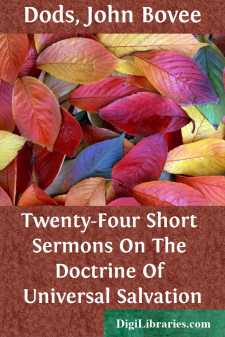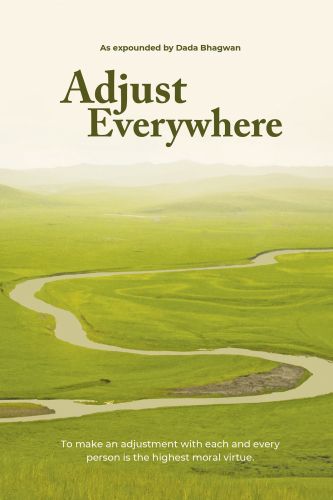Categories
- Antiques & Collectibles 13
- Architecture 36
- Art 48
- Bibles 22
- Biography & Autobiography 813
- Body, Mind & Spirit 142
- Business & Economics 28
- Children's Books 17
- Children's Fiction 14
- Computers 4
- Cooking 94
- Crafts & Hobbies 4
- Drama 346
- Education 46
- Family & Relationships 57
- Fiction 11829
- Games 19
- Gardening 17
- Health & Fitness 34
- History 1377
- House & Home 1
- Humor 147
- Juvenile Fiction 1873
- Juvenile Nonfiction 202
- Language Arts & Disciplines 88
- Law 16
- Literary Collections 686
- Literary Criticism 179
- Mathematics 13
- Medical 41
- Music 40
- Nature 179
- Non-Classifiable 1768
- Performing Arts 7
- Periodicals 1453
- Philosophy 64
- Photography 2
- Poetry 896
- Political Science 203
- Psychology 42
- Reference 154
- Religion 513
- Science 126
- Self-Help 84
- Social Science 81
- Sports & Recreation 34
- Study Aids 3
- Technology & Engineering 59
- Transportation 23
- Travel 463
- True Crime 29
Twenty-Four Short Sermons On The Doctrine Of Universal Salvation
by: John Bovee Dods
Description:
Excerpt
SERMON I
"What man is he that desireth life, and loveth many days that he may see good? Keep thy tongue from evil, and thy lips from speaking guile; depart from evil and do good; seek peace and pursue it." Psalm xxxiv:12-14.
Self-preservation and the desire of protracting the momentary span of life is the first principle of our nature, or is at least so intimately interwoven with our constitution as to appear inherent. So powerful is this desire, that in defiance of pain and misery, it seldom quits us to the last moments of our existence. To endeavor to lengthen out our lives is not only desirable, but is a duty enjoined upon us in the scriptures, and is most beautifully and forcibly expressed in our text.
We might here introduce many observations of a philosophical character on air and climate, meat and drink, motion and rest, sleeping and watching, &c. and show how sensibly they contribute to health; and we might furnish many examples of long life, but we pass these, and proceed to notice the affections of the mind upon which our text is grounded.
The due regulation of the passions contributes more to health and longevity than climate, or even the observance of any course of diet. Our Creator has so constituted our natures, that duty, health, happiness and longevity are inseparably blended in the same cup. To suppress, and finally subdue all the passions of malice, anger, envy, jealousy, hatred and revenge, and to exercise (till they become familiar) all the noble passions of tenderness, compassion, love, hope and joy, is a duty that heaven solemnly enjoins upon us, and in the performance of which our years will be multiplied. But we must guard not only our moral natures from the ravages of the corroding and revengeful passions, but also our physical natures by observing the strictest rules of temperance in eating, drinking, cleanliness and exercise.
The book of God commands us to "be temperate in all things." The observance of this duty gives us a firm constitution, robust health, and prepares us to participate in all the innocent and rational enjoyments of life. Here we may witness the goodness of the Divine Being in uniting our duty, happiness and interest in one; and so firmly are they wedded together, and so absolutely does each depend upon the other that they cannot exist alone. They are alike laid in ruins the moment they are separated. If we trace this idea still further, we witness the same wise arrangement, and the same incomprehensible skill and goodness of the Author of our being in the constitution of our mental natures. In these also he has wholly united our duty, happiness and longevity in one. Jesus says, "Love your enemies; bless them that curse you, do good to them that hate you, and pray for them that despitefully use you, and persecute you, that ye may be the children of your Father in heaven." Paul says—"Let all bitterness and wrath and anger and clamor and evil speaking be put away from you, with all malice, and be ye kind one to another, tender hearted, forgiving one another even as God for Christ's sake hath forgiven you."
Here then is our duty plainly pointed out....












